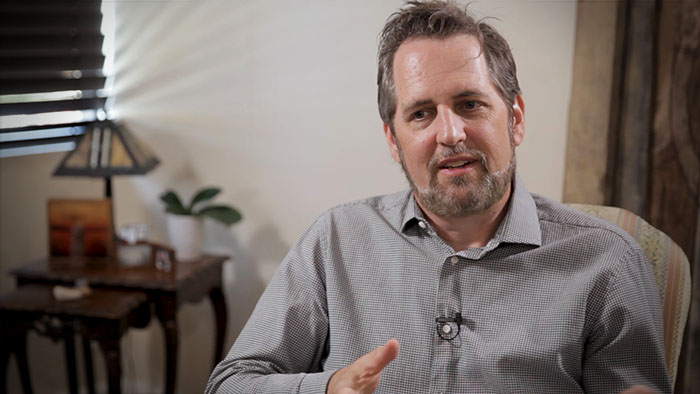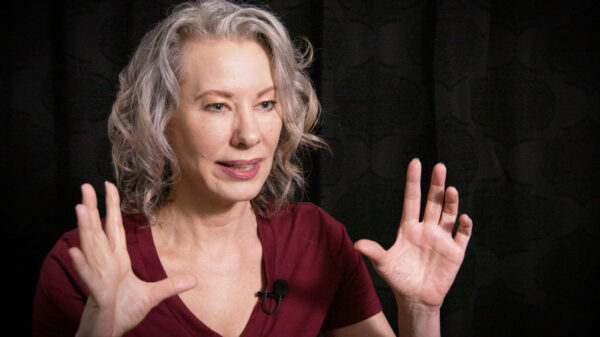
Watch the video interview on Youtube here
Film Courage: Let’s talk about the hypothetical spec script, let’s suppose I want to get on a show, what would be my method for doing this? Am I writing an episode that already exists? A continuation of one?
Erik Bork, Screenwriter/Author: In television these days to be in consideration for getting your first writing job on staff of a show which means you didn’t sell your own original show, you got hired to write for someone else’s show which is still the much more likely scenario for a new writer, right?

Check out Erik’s book on Amazon here
People are writing original pilots and hoping to sell them and get them on in front of an audience. Of course there’s always a chance that that could happen, but it’s very rare. Today people writing original pilots within the industry, people who have managers and agents writing original pilots, if they don’t already have a big tract record writing for television or film and a lot of success, they are probably writing that as a writing sample and trying to get a job on staff of a series.. what’s changed in the 20 years since I was doing that is that back in the 90’s and before, the traditional way to get hired on staff of a series was to write what they would call a spec episode of an existing show. Just some successful relatively new show what the industry liked and respected like SEINFELD was the big show to do during its second season is about the right time. Where people are writing their own ideas for an original SEINFELD that hopefully reads like a really good episode of SEINFELD. Like you read the script and you’re like this could be on that show, it could be a really good episode of that show, they capture the voices, it’s very funny, etcetera, etcetera. Not easy to do really well. Easy to do mediocrely, not easy to do well enough where people go Wow! Which of course that’s what you want when you’re a screenwriter is to get that Wow! is rare and sought after, right?
So back then very few people wrote original pilots if they weren’t already established because there was nothing to do with them. They weren’t looking for original pilots as writing samples as much. They want to know that you can write in another writer’s voice, an episode of show that already existed which of course is what you would be doing if you got hired on staff.
For some reason in the last 20 years that has shifted a lot. What I’ve heard anecdotally is that where in those days 80 percent of it was specs of existing shows and nowadays it’s like 80 percent of it is original pilots that people are writing and that is what is getting the managers and agents and getting their first job on a series (on a writing staff).
People still do write specs of existing shows. I think you definitely need to write them to get into to some of the big fellowships that some of the big studios and networks offer which are great ways to try and break into TV writing. But what is much more in vogue is writers writing original pilots for series that they come up with and those pilots become their main writing sample or samples that they use to try to first get a manager and then get an agent (they kind of have to go step-by-step) and then having their managers sending them to production companies, showrunners, executives and the studios and networks, streaming services to try to get you noticed as a potential TV staff writer.

Watch the video interview on Youtube here
Film Courage: And so how long would these spec scripts be? So it’s going to be half-hour content?
Erik: Yes, it’s going to be the same typical length for the script you’re writing for. Well…if it’s original, a show of the ilk of what you’re writing. In other words, if you’re writing a one-hour (clearly) a network style drama, it’s going to be about 45-minutes because there are going to be commercials and then how many pages that translates to. They say a minute a page, you can go a little long.
In a spec I would say a 1-hour pilot, 60 pages would probably be the max you’d want to go for. Whereas a pilot you’re really trying to copy successful shows that are similar to yours would do in terms of length. So it’s really helpful to read scripts, not just read episodes that inspire you to want to write something in that genre whether it’s an HBO-type show or a Netflix-type show. Nowadays those shows have services that can have different length shows so that they’re not a standard 20-minute half-hour comedy on ABC there’s a little more flexibility. So you don’t have to be too nervous about the exact right number of pages but generally you are emulating what is standard for the kind of script that you’re writing.
Film Courage: Why do you say it’s so hard to make a great spec script, it’s easier to make a mediocre one?
Erik: Well, when you write an existing spec script of a show, I think it’s easy-ish to write something where the characters talk the way they talk on the show and you have the kind of jokes you can imagine they would have, but maybe they are not great jokes but kind of okay jokes. And the kind of story and behavior that is their typical behavior. It’s not so hard to mimic that. It’s hard to mimic in a way that is as good or better then an actual produced show is. Because really for a way for one of those scripts to stand out, it actually has to be better than the average episode. It has to feel like Why haven’t they done this episode? It’s like a great idea, it’s perfect for the show, it’s really funny, it’s really memorable. (If it’s a comedy obviously you are going for the funny) and that’s just hard to do really well.
It looks easy (which is why I tried to do it), it looks easy to write a show that you know is a good show to come up with your own ideas for stories for an episode but to do it on a level that someone would hire you based on it is not easy and normally the show you wrote it for is not going to hire you. They’re probably not even going to want to read it. They probably will be tougher on it than any other show will be because they know their show so well. And they probably aren’t looking for writers because they are already on the air with a hit.
So typically when you’re breaking into television you’re breaking in with a staff writing job on a brand new show that no one has ever seen before. You may not even love the show but it’s where they offered you the job based on reading your stuff and it may be a job that gets canceled in its first season because most of them do, but that’s kind of the life of what they call a baby writer (a writer breaking into television working on staff).

Watch the video interview on Youtube here
But most of that doesn’t apply as much today because most people are writing original pilots instead of specs. But obviously it’s hard to write an original pilot that impresses people too. Perhaps harder because now you’re coming up with characters and a whole situation that you know nothing about and you have to make them care about these characters be entertained and be intrigued and all that kind of stuff and all of the problems of the show have to be really compelling. Whereas if you’re writing a spec episode of an existing show, a lot of that has already been done for you. You just have to write a variation on something that someone has already established. Maybe that’s why nowadays those aren’t valued as much because people can say You didn’t have to do as much to do that.
On the other hand when you write on staff of a show a big part of your job is mimicking the voice of the showrunner. Being able to execute the show in a way that they would have liked, that they would have done it, which is not a skill that every writer has.
So to show you can write somebody else’s show and their voice really I think is a valuable thing. But the industry is more interested in original pilots for writing samples despite that I think these days.
Film Courage: But you say it’s rare that…let’s suppose for SEINFELD, I’m writing to get on it and it’s still in existence, that I’m writing this [for the show] and thinking that I’m going to be in the writer’s room for SEINFELD. No…I’m submitting it for FRIENDS?
Erik: Well, you’re not submitting it for FRIENDS, you’re submitting it for some show that hasn’t even even on the air yet. And that’s the reality because your agent would be the one doing all the submitting, right? So first you have to impress an agent enough to get an agent. But once you have an agent, they are going to be submitting these new potential writers, all those brand new shows that just found out they got a series order and now they have to staff up. The shows have are already on the air, they already have a staff. They may have one person leave and they fill it once a vacancy comes up but basically they are already there. So you’re almost never going to get on a successful existing hit show that you love or that you would have written a spec of. You’re going to use that spec to get on some brand new unknown show that you may or may not love or may or may not be right for but they thought you were right for based on your script.
Question For The Viewers: Does this help to clarify how to break into television as a writer?

Like this video? Please subscribe to our Youtube channel. Or love this video and want more? You can show additional support via our Youtube sponsor tab (hit the JOIN button on the front page of our Youtube channel in the upper right hand corner or underneath any video if watching on Youtube) or through Patreon.
Advertisement – contains affiliate links:
If you’re not quite ready to let go of the Halloween spirit, new indie feature film Mandao of the Dead is now available on Amazon VOD.
Mandao (Man-Day-Oh) of the Dead is about Jay Mandao and his nephew-in-law Jackson who use astral projection to reverse a ghost’s death on Halloween.
This astral comedy is the second feature film Written and Directed by Scott Dunn and produced by Gina Gomez Dunn. It was filmed in 10 days with a production budget of just $13k. The duo’s first feature film, Schlep won Best Comedy/Dramedy at the Hollywood Boulevard Festival and was nominated in 5 different categories at the FirstGlance Film Festival. Schlep is also available on Amazon. Mandao of the Dead will be released on iTunes and DVD/Blu-ray in January 2019.
Film Music Mentor – A Youtube channel for filmmakers, television producers, content creators and media professionals of all kinds. Film Music Mentor will help you circumvent problems even the most seasoned professionals face.
Multiple award-winning composer/music producer Andrew Markus breaks down every challenge that motion picture creators face in the process of putting music in their projects. Why it works and why it fails.
Restraint – A mentally ill woman who’s been submerging her violent impulses for years unravels after she marries a controlling older man and relocates to his suburban home by Adam Cushman


























